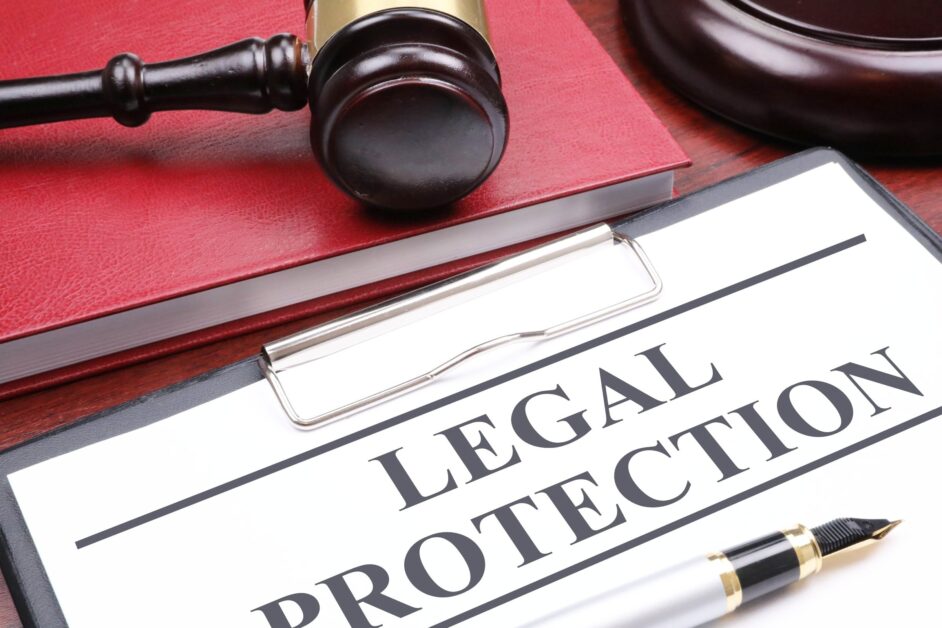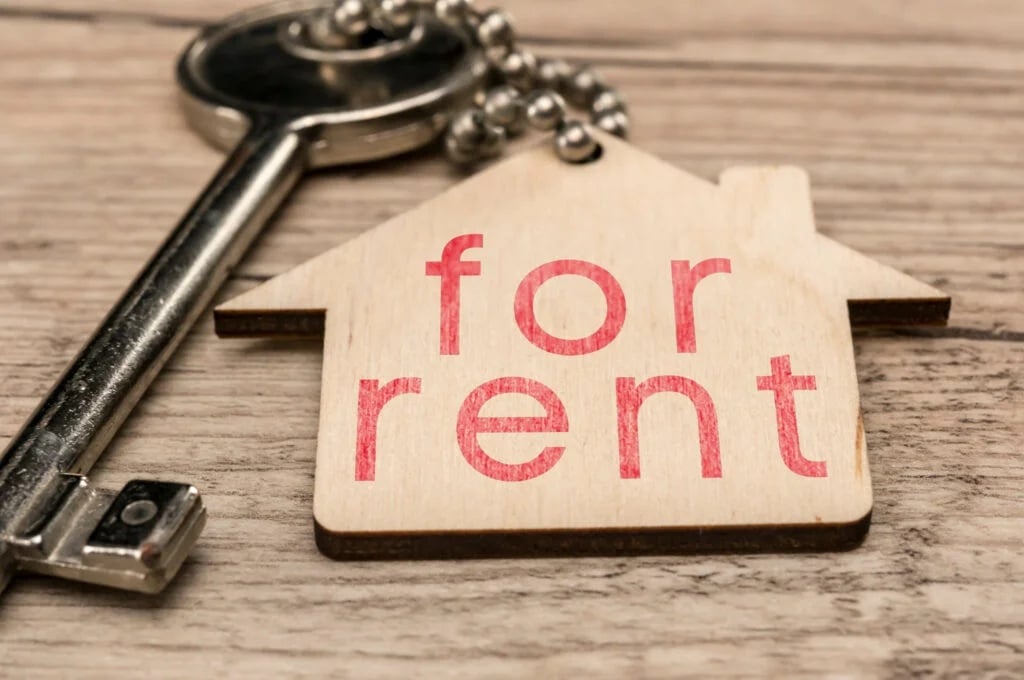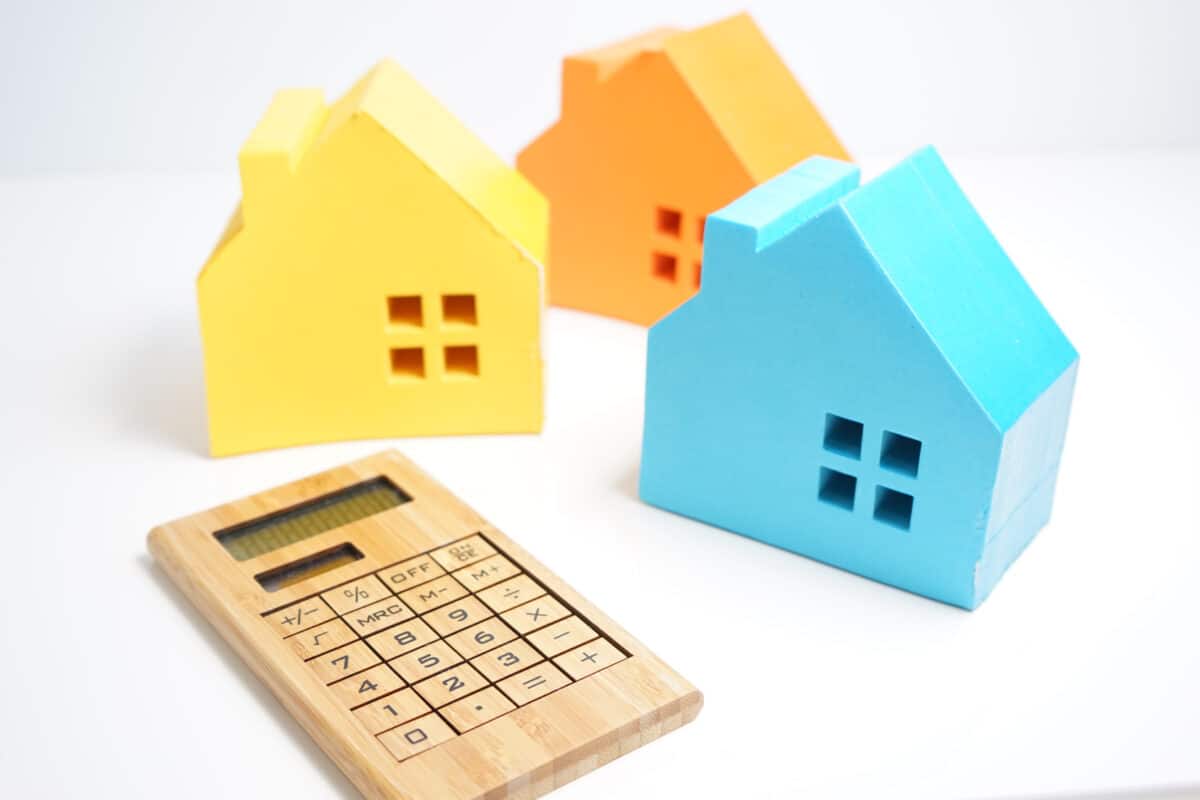What If the Developer Goes Bankrupt?

Buying pre-construction in Ontario? You’re staring at those architect renderings, already mentally arranging furniture, maybe even telling your friends about the balcony.
Then it hits you.
What if the whole thing collapses?
Sounds paranoid, I know. Except it’s possible. Developers go belly-up when costs explode, when units don’t sell fast enough, when the money guys bail. Happens. Most times, everything works out, the building gets done, you get your keys, life’s good.
But when it doesn’t? What a mess. Your deposit’s stuck somewhere in legal limbo, timelines mean nothing anymore, and you’re drowning in paperwork you definitely didn’t sign up for.
That’s why this matters.
Understanding the actual protections, trust accounts, what Tarion actually covers (and doesn’t), the legal stuff Ontario has in place, it’s the difference between freaking out and being like, okay, I’ve got this handled.
Hi, my name is Jatin Gill. I have been an agent for 15+ years, working with buyers who are trying to make sense of Ontario’s pre-construction world without getting burnt. So let’s talk about what actually happens when developers go bankrupt. And more importantly, how do you protect yourself way before it becomes some headline you’re reading over breakfast?
Read: Step-by-Step Guide for First-Time Pre-Con Buyers
Understanding Developer Bankruptcy in Ontario Preconstruction Projects
Ever cruise past a construction site that just… stopped? Cranes frozen mid-air, those flashy banners starting to fade and curl at the edges. That eerie stillness? That’s what developer trouble looks like before anyone admits it out loud.
So what does bankruptcy even mean when we’re talking pre-construction? Messier than you’d think. Sometimes the developer’s just insolvent, can’t cover what they owe. Other times, it’s a full-blown bankruptcy where the courts swoop in and everything gets liquidated. Either scenario? Rarely gets resolved fast. Or cleanly.
Here’s the typical domino effect when things start falling apart:
- Money vanishes. Workers ghost the site. That excavator just sits there collecting rust. Progress updates? Yes, those stop coming too.
- The financing implodes. Banks get nervous, yank their funding, and suddenly you’ve got beautiful blueprints with exactly zero dollars backing them.
- Receivers enter the chat. The court appoints someone to manage the wreckage, sorting through assets, dealing with angry creditors, and trying to minimize the disaster.
And then buyers, real people who dropped tens of thousands expecting an actual condo, they feel it too:
- Everything gets delayed. Construction goes dark for months, sometimes years, while the legal circus plays out in boardrooms nobody invited you to.
- Projects get axed. Sometimes the whole thing’s cancelled outright, and the land gets flipped to pay off whoever’s owed money.
- New developers might step in. Occasionally, someone else buys the mess and finishes it, but don’t count on getting what you originally signed up for. Different layouts, cheaper finishes, higher prices. Fun times.
Don’t panic, actual bankruptcies in Ontario’s condo market? Pretty uncommon. We’re talking maybe a handful over the last twenty years. But with construction costs going haywire lately, interest rates doing their thing, pre-sales moving slower than molasses… keeping your radar on isn’t exactly paranoia.
Direct Risks to Investors When a Developer Goes Bankrupt
So what happens when a developer goes under? There are consequences, some smack you in the face immediately, others kind of sneak up, like when you realize you’ve been paying interest on something for way longer than you thought. Here’s the reality:
- Deposit Vulnerability & Recovery Delays
- Yes, trust accounts exist. Protections are “there.” But here’s the thing: a big piece of your deposit, maybe 15–20% of what you paid, can still end up frozen.
- Getting it back takes forever. I mean, we’re not talking weeks. Think months, sometimes multiple years, while lawyers argue and paperwork gets shuffled around.
- Project Cancellation: Loss of Unit & Opportunity
- Sometimes the building just doesn’t get built. That’s it. No condo, no keys, no Instagram-worthy balcony shots. Done.
- And it’s not only about losing the unit, what about the equity you were counting on? The rental income? That money’s essentially dead weight now instead of working for you.
- If you needed somewhere to actually live, well, now you’re hunting for temporary housing, paying extra rent you didn’t budget for, and honestly? The stress alone is exhausting.
- Extended Delays and Uncertainty
- Construction timelines become a joke. “Next quarter” turns into “maybe next year” turns into who-knows-when. Every update feels vaguer than the last.
Read: The Pre-Construction Condo Timeline Explained
- Already moved into interim occupancy? Brutal. You’re basically throwing money at something you don’t technically own yet, and after a while, that starts messing with your head.
- Everything else in your life gets thrown off, too. Mortgage approvals expire. Moving plans collapse. What seemed straightforward six months ago now feels like you’re wading through quicksand.
Read: Everything You Should Know about Interim Occupancy in Canada
- Legal and Financial Complications
- You’re going to need a lawyer. Probably multiple conversations with them. They’ll help you figure out what rights you even have, how to file claims, and maybe drag you to court hearings you never wanted to attend.
- And here’s what really stings: when money gets distributed, banks eat first. Secured creditors are next in line. Buyers? You’re further down that list, which means you might not recover everything.
- Taxes can get weird, too, depending on how refunds shake out or if you’re claiming this as a loss. Talk to an accountant before the CRA decides to make your life more complicated.
None of this is theoretical, by the way. It happens. Not often, but when it does? It drags on forever and costs way more than anyone expects. The difference between surviving it relatively intact versus having your finances completely wrecked comes down to one thing: knowing this stuff before you sign anything.
Read: Why You Need a Real Estate Lawyer for Your Property Purchase

An Example: The Urbancorp Case
Sometimes, a real-world example paints the picture far better than theory ever could. Urbancorp was once a fairly large Toronto developer, building both condos and homes. A serious player! Yet, even serious players can stumble. Here’s what happened, in a nutshell:
- The Scenario
- Urbancorp ran into major financial troubles. Over-leveraged, stretched thin across multiple projects, and facing the realities of rising construction costs and slower pre-sales, they hit the wall.
- Deposits were held in trust accounts, which was a lifesaver, but the process of returning funds to buyers dragged on painfully. Some waited nearly two years before their money came back.
- Rarity of Such Cases
- Developer bankruptcies of this scale are extremely rare in Toronto, maybe a couple of times in the past 10–20 years.
- It’s worth remembering: the vast majority of projects reach completion. Urbancorp was the exception, not the rule.
- Impact on Buyers
- Purchasers were largely at the mercy of financial decisions they had no control over.
- Loss of time, lost potential appreciation, and, emotionally, an awful lot of stress.
- Thankfully, deposits were ultimately returned, thanks to trust accounts and legal safeguards, but the waiting game was long and tense.
- Developer Outcome
- Interestingly, Urbancorp still had valuable land assets. Some reports suggested the company could have ended up with a potential profit of tens of millions even without completing the projects.
- This unusual twist highlights a key lesson: owning tangible, scarce assets like real estate often wins in the long run, even if the developer itself struggles.
- Lessons Learned
- Assets are ultimate insurance: Scarcity and demand matter. Land and property rarely lose all value.
- Buy from reputable developers: History, track record, and transparency reduce risk.
- Ensure deposits are in trust accounts: This is a non-negotiable safeguard for any preconstruction purchase.
The Urbancorp case is a reminder: even big, well-known developers aren’t immune to market realities, but smart buyers, armed with knowledge and protections, can weather the storm without losing everything.

Key Protections for Ontario Preconstruction Condo Investors
Okay, so we’ve covered what can go wrong and the possible consequences. Now let’s flip the coin: Ontario isn’t leaving buyers entirely to chance. There are strong protections in place.
- Trust Accounts: The Primary Safeguard
- Under the Condominium Act, 1998, all preconstruction condo deposits must be held in a segregated trust account.
- Why it matters: These funds are legally separate from the developer’s operating money. Even if the developer goes bankrupt, your deposit is protected.
- Return timeline: If the purchase agreement is terminated by the builder, the law requires deposits to be returned within 10 days. Quick, right? (Well, at least faster than some court processes.)
- Tarion Warranty Corporation: Backup Protection
- Tarion adds an extra safety net for new homes in Ontario.
- Deposit protection for condos: If a builder fails to return your funds, Tarion covers up to $20,000.
- Difference from freehold homes: Freehold buyers enjoy higher protection limits, but for condos, trust accounts are the real safeguard.
Read: New Home Warranty Programs (Tarion) Explained
- Condominium Act, 1998: Legal Framework
- Sets out your rights as a buyer and ensures mandatory disclosure from developers.
- Includes a 10-day cooling-off period for deposit cancellation.
- Requires interest to be paid on deposits at prescribed rates, usually modest, but it’s something.
- Receivership & Project Continuation
- If a developer goes bankrupt, a court-appointed receiver may manage the project.
- There’s a chance a new, financially stable developer could take over and complete it.
- Important caveat: This is possible, not guaranteed. Timelines and finishes can still change.
- Title Insurance: A Side Note
- Primarily protects post-possession title issues, but can sometimes offer limited protection if financial complications arise from a developer situation.
Bottom line: Ontario’s system isn’t perfect, but it’s robust. Trust accounts + Tarion + legal safeguards form a three-layer safety net. Most importantly, knowing these protections exist keeps panic at bay when projects hit turbulence.
Proactive Steps to Mitigate Developer Bankruptcy Risk
You can’t see every curveball coming, obviously. But there’s a lot you can do to tilt things in your direction.
- Thorough Developer Due Diligence
- Track record matters. Pull up their past projects. Did stuff actually get finished? On time? On budget? Or were there constant excuses and corner-cutting?
- Financial health: You want a developer who’s been around, who’s stable, who hasn’t had sketchy collapses in their history. Red flags here are deal-breakers.
- Regulatory stuff: Make sure they’re registered with Tarion and the HCRA. Public directories exist for a reason; use them. Takes like ten minutes and could save you years of headaches.
Read: Top 14 Condo Developers in Toronto
- Legal Review of Purchase Agreements
- Get a lawyer. Not just any lawyer, someone who lives and breathes Ontario new construction deals. This isn’t the time for your cousin who does corporate law.
- Pay attention to these clauses specifically:
- How your deposit’s protected (or not)
- What happens if the project gets cancelled? Do you have an out?
- Assignment rights in case you need to bail
- Development charges and what closing’s actually gonna cost you
- Interim occupancy, how much, for how long, and who’s pocketing that money
- Continuous Project Monitoring
- Don’t just sign and disappear. Keep tabs on construction updates, city approvals, and local news mentioning the developer’s name.
- Warning signs to watch for: delays that don’t add up, sudden fire-sale pricing on units (why the desperation?), or radio silence when you try reaching the builder.
- Prudent Financial Planning
- Keep cash accessible beyond what you’ve already put down. Unexpected costs pop up constantly, and delays mean you might be covering temporary housing longer than planned.
- Emergency fund’s non-negotiable here, especially if you’re banking on rental income or have a hard move-in date circled on the calendar.
- Diversify Your Investments
- Don’t throw everything at one project or one developer. That’s just asking for trouble. Spread your money around, different properties, different builders, maybe even different cities.
- Stay Abreast of Market Conditions
- Big-picture economics matter. Interest rates climbing? Inflation going nuts? Housing demand tanking? All of that impacts whether developers can actually pull off what they promised.
- Local market stuff counts too. How’s supply and demand looking in that specific neighbourhood? Is the area trending up or starting to cool off?
Look, developer bankruptcies don’t happen every day. But being ready for the possibility? That’s what separates people who weather problems from people who get absolutely wrecked by them.

What to Do If Developer Bankruptcy Occurs
Even when you’ve done everything right, stuff can still fall apart. If your developer declares bankruptcy, how fast you move and how smart you are about it can literally save you thousands. Here’s what to actually do:
- Seek Immediate Legal Counsel
- Call your real estate lawyer immediately. Not tomorrow, not next week, now. They’ll break down what rights you have and help you navigate the absolute mess that bankruptcy proceedings become.
- They can also tell you if there’s a class-action forming or if banding together with other buyers makes sense.
- Contact Tarion (if applicable)
- File your deposit protection claim fast. Remember that $20,000 cap for condos, not exactly generous, but it’s something.
- Deadlines and paperwork matter here more than anywhere else. Miss a filing date or forget a document? You could be waiting even longer or lose your claim entirely.
- Monitor Receivership Proceedings
- Once a receiver gets appointed, read everything they send you. Court documents will tell you whether the project might actually continue or if everything’s getting liquidated.
- Your lawyer should advise whether showing up to creditor meetings is worth your time; sometimes it is, sometimes it’s pointless.
- Evaluate Your Options
- Wait it out: Maybe another developer with actual money buys the project and finishes it. But brace yourself for delays, design changes, and a whole lot of uncertainty about timelines.
- Cut your losses: Focus on getting your deposit back and moving on to something less complicated. Sometimes walking away is the smartest financial move.
- Tax stuff: Talk to an accountant about how recovered deposits or losses affect your taxes. The CRA will definitely have opinions about this.
Bottom Line
Developer bankruptcy in Ontario’s preconstruction world? Doesn’t happen often. But it’s not impossible either. The upside is Ontario actually has decent protections built in, trust accounts, Tarion coverage, and legal frameworks that aren’t completely useless. Knowing this stuff upfront is basically your insurance policy.
Staying safe really comes down to a few things:
- Research the developer properly. Their history matters.
- Get a lawyer who knows new construction inside and out to review your contracts.
- Actually, pay attention to how construction’s progressing and what’s happening in the market.
- Keep some financial wiggle room because delays are pretty much guaranteed at some point.
Do these things, and you’re not eliminating risk entirely; that’s unrealistic, but you’re definitely reducing it. You stay in the driver’s seat instead of feeling helpless when problems pop up. And your investment, along with your sanity, stays protected even when things get messy.
Need expert and professional help or guidance? Contact us at Platinum Condo Deals. We’ll walk you through smart decisions and help you invest without second-guessing everything.
Jatin Gill, an esteemed authority in real estate writing, is celebrated globally for his unparalleled expertise. With over 20 years in the industry, he has authored more than 1,000 SEO-friendly articles covering every facet of real estate. Specializing in pre-construction projects, Jatin's extensive knowledge spans all real estate topics. His content is a go-to resource for anyone seeking comprehensive, insightful, and up-to-date information in the real estate market.
Learn MoreFAQs
Pretty uncommon, honestly. Over the last twenty years or so, you can count the major cases on one hand. But “rare” isn’t the same as “never,” which is exactly why understanding your protections matters.
For condos, your deposit sits in a trust account thanks to Ontario’s Condominium Act, completely separate from whatever mess the developer’s finances are in. You’ll get it back eventually, though “eventually” might test your patience.
It can take several months, sometimes even years. Legal reviews and administrative steps often slow things down, even with protections in place.
Yes, Tarion covers up to $20,000 for condo deposits. Any amount above that is protected through the builder’s trust account system.
Yes, if you’ve moved into interim occupancy but the project hasn’t closed yet, you’ll likely still owe occupancy fees, often called “phantom rent.”
Additional Resources















Awards & Achievement










Subscribe for the Latest Condo Deals
Apologies, our subscription list for this month is now full. Please register on our website to secure your spot for next month. Thank you for your interest!

